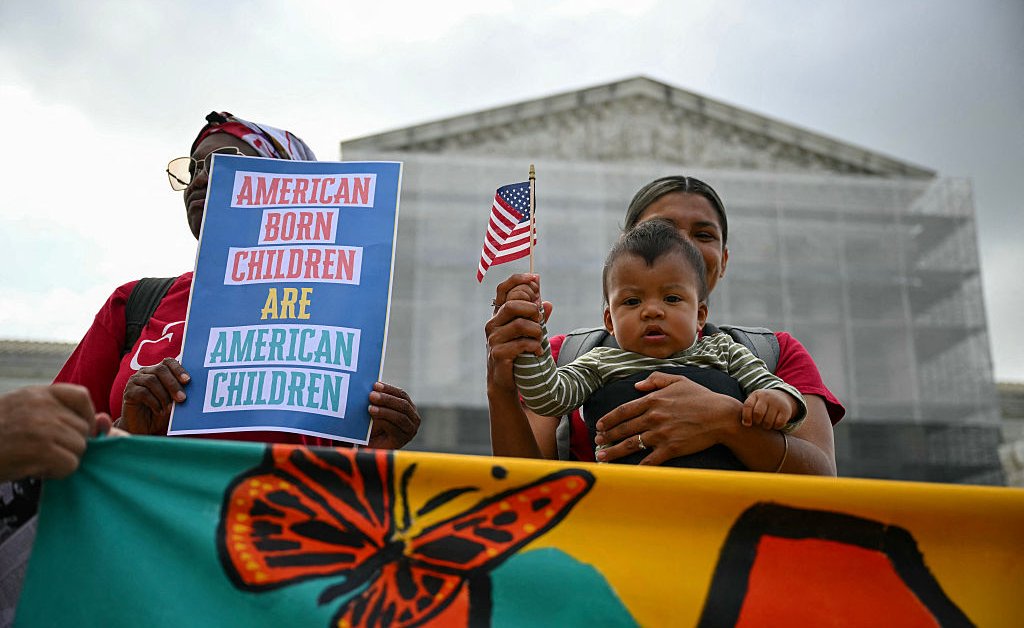Rising Temperatures, Rising Risks: Climate Change And The Challenges To Pregnancy

Welcome to your ultimate source for breaking news, trending updates, and in-depth stories from around the world. Whether it's politics, technology, entertainment, sports, or lifestyle, we bring you real-time updates that keep you informed and ahead of the curve.
Our team works tirelessly to ensure you never miss a moment. From the latest developments in global events to the most talked-about topics on social media, our news platform is designed to deliver accurate and timely information, all in one place.
Stay in the know and join thousands of readers who trust us for reliable, up-to-date content. Explore our expertly curated articles and dive deeper into the stories that matter to you. Visit Best Website now and be part of the conversation. Don't miss out on the headlines that shape our world!
Table of Contents
Rising Temperatures, Rising Risks: Climate Change and the Challenges to Pregnancy
Climate change is no longer a distant threat; its impacts are being felt globally, and nowhere is this more acutely felt than in the delicate balance of human health, particularly during pregnancy. Rising temperatures, extreme weather events, and air pollution – all hallmarks of a changing climate – are presenting significant and growing challenges to maternal and fetal well-being. This article explores the complex interplay between climate change and pregnancy, highlighting the emerging risks and potential solutions.
The Heat is On: Impacts of Extreme Temperatures on Pregnancy
Extreme heat, a direct consequence of global warming, poses several risks during pregnancy. Studies have linked high temperatures to:
- Increased risk of preterm birth: Heat stress can trigger premature labor, leading to low birth weight and associated health complications for the newborn.
- Higher rates of birth defects: Exposure to extreme heat during critical periods of fetal development may increase the risk of certain birth defects.
- Reduced fetal growth: Maternal overheating can impair placental function, hindering nutrient and oxygen delivery to the developing fetus.
- Hyperthermia: Severe heatstroke in pregnant women can have devastating consequences for both mother and child.
These risks are particularly pronounced in regions already experiencing high temperatures or those experiencing more frequent and intense heatwaves. For expectant mothers, staying hydrated, seeking shade during peak heat hours, and utilizing air conditioning are crucial preventative measures. However, access to these resources is not universal, highlighting the disproportionate impact of climate change on vulnerable populations.
Beyond Heat: Other Climate Change-Related Risks to Pregnancy
The effects of climate change extend beyond extreme heat. Other significant risks include:
- Air pollution: Increased air pollution, exacerbated by climate change, can lead to respiratory problems in pregnant women and affect fetal lung development. Exposure to particulate matter and other pollutants has been linked to low birth weight and preterm birth. [Link to a relevant study on air pollution and pregnancy]
- Infectious diseases: Changes in temperature and rainfall patterns can alter the distribution and prevalence of infectious diseases like Zika virus and malaria, posing significant threats to pregnant women and their unborn children. [Link to CDC information on Zika virus]
- Extreme weather events: Floods, droughts, and wildfires displace populations, disrupt access to healthcare, and create stressful conditions that negatively impact maternal and fetal health. The trauma and uncertainty associated with these events can have long-term consequences.
Addressing the Challenge: Mitigation and Adaptation Strategies
Addressing the complex interplay between climate change and pregnancy requires a multi-pronged approach:
- Mitigation: Reducing greenhouse gas emissions is crucial to slowing the pace of climate change and lessening the severity of its impacts. This requires global cooperation and a transition to cleaner energy sources.
- Adaptation: Implementing strategies to help communities cope with the unavoidable impacts of climate change is equally important. This includes improving access to healthcare, particularly for pregnant women in vulnerable communities; investing in early warning systems for extreme weather events; and promoting public health initiatives to reduce air pollution.
- Public Awareness: Educating pregnant women and healthcare providers about the risks of climate change and providing practical advice on how to mitigate these risks is essential.
Conclusion:
The relationship between climate change and pregnancy is undeniable. As temperatures continue to rise and extreme weather events become more frequent, the challenges faced by pregnant women and their unborn children will only intensify. Addressing this complex issue requires urgent action on both mitigation and adaptation fronts, coupled with a commitment to protecting the health and well-being of expectant mothers and their babies. We need to prioritize research, improve access to healthcare, and advocate for policies that address the root causes of climate change to safeguard the health of future generations.

Thank you for visiting our website, your trusted source for the latest updates and in-depth coverage on Rising Temperatures, Rising Risks: Climate Change And The Challenges To Pregnancy. We're committed to keeping you informed with timely and accurate information to meet your curiosity and needs.
If you have any questions, suggestions, or feedback, we'd love to hear from you. Your insights are valuable to us and help us improve to serve you better. Feel free to reach out through our contact page.
Don't forget to bookmark our website and check back regularly for the latest headlines and trending topics. See you next time, and thank you for being part of our growing community!
Featured Posts
-
 Trump In The Middle East A Review Of The Most Important Events
May 17, 2025
Trump In The Middle East A Review Of The Most Important Events
May 17, 2025 -
 Was Peace Possible Examining Putins Missed Chance For Negotiation
May 17, 2025
Was Peace Possible Examining Putins Missed Chance For Negotiation
May 17, 2025 -
 Tottenham Hotspur At Aston Villa A Premier League Showdown
May 17, 2025
Tottenham Hotspur At Aston Villa A Premier League Showdown
May 17, 2025 -
 Supreme Court To Decide Fate Of Birthright Citizenship A Landmark Case
May 17, 2025
Supreme Court To Decide Fate Of Birthright Citizenship A Landmark Case
May 17, 2025 -
 Flash Flood Warnings Issued For New Jersey And Pennsylvania What You Need To Know
May 17, 2025
Flash Flood Warnings Issued For New Jersey And Pennsylvania What You Need To Know
May 17, 2025
